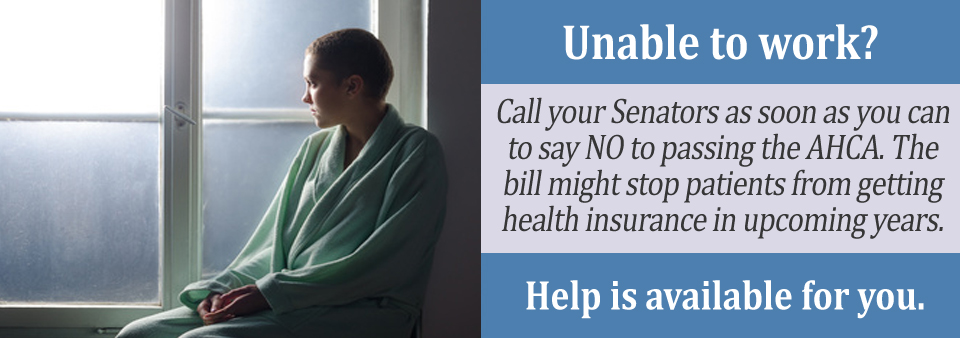On Thursday, May 4th, the House of Representatives narrowly passed the American Health Care Act, or ACHA. The ACHA is intended to replace “Obamacare,” or the Affordable Care Act. The bill narrowly passed the House with a 217-213 vote, and still has yet to pass the Senate. If the bill does continue as is, the ACHA may affect you or your loved ones if you have a disability. Here are some key points of the ACHA:
1. Pre-Existing Conditions Might Not Be Covered
One of the most disliked components of the ACHA is the MacArthur amendment. Under this amendment, states will be allowed to obtain waivers to components of the Affordable Care Act, such as charging people with pre-existing conditions the same amount for insurance as healthy Americans. If states receive the waiver, insurers will legally be able to charge people with pre-existing conditions significantly more than others, based on the “health status” of the applicant. Conditions that could cause your health insurance to rise include, but are certainly not limited to:
- Acne
- Asthma
- Cancer
- Down syndrome
- Diabetes
- Epilepsy
- Hepatitis
- Obesity
- Paralysis
- Parkinson’s disease
- Pregnancy (including men expecting a child)
- Sleep apnea
- Stroke

It is important to note that these conditions are not explicitly named in the bill, but have been enough to deny applicants insurance in the past. The waivers will also allow states to charge elderly applicants five times as much for health insurance as they do young applicants. This is up from a three-fold charge in the Affordable Care Act.
What could this mean for people with disabilities? If you do not have employer health insurance, it could become very costly for you to have insurance for yourself or your family. Some sources estimate people with cancer would have premiums 3,500% higher than healthy, young adults. The AHCA states that the waivers will not come into effect unless you’re uninsured for 63 days, so if you can, remain on a spouse’s or parent’s employer-offered health insurance as long as possible.
2. Medicaid Would Lose Funding
Under the proposed ACHA, Medicaid would receive cuts of $880 billion starting in 2019. The fundamental system would also be changed—Instead of keeping Medicaid as an as-needed program, with the government giving states additional funding for a state’s number of qualifying applicants, Medicaid would become a grand program. This means that states will be given a set amount of money per person starting in 2019. Additionally, people on Medicaid will be required to be working unless they have a disability under the AHCA.
So what does this mean for people on Medicaid? For many people with disabilities, this mean you could receive less coverage for expensive treatments, particularly cancer, renal disease, or other costly disabilities. If you have a period where you’re no longer enrolled on Medicaid and try to reapply, you may find that you no longer qualify.
3. Children Will Still Remain Eligible Under Parents’ Plan
This wildly popular component of the Affordable Care Act remains in tact in the AHCA. If you have a child with a disability, he or she will still be eligible for your health insurance until age 26, regardless of whether he or she is married, or if your child lives at home.
What Can You Do?
The good news for people with disabilities is this bill isn’t law yet. It still needs to get through the Senate, and a lot of members of congress have expressed concerns with the AHCA. It’s unlikely that the bill will pass as-is.
If you’d like to express your concerns about the AHCA’s current standing on pre-existing conditions and cuts to Medicaid, you should call your senators. You can visit the United States Senate directory to find your local senator to call. Together, we can work to protect the rights of millions of Americans whose health care is in jeopardy.
Blog comments
My sister has received SSI
My sister has received SSI and Medicaid for the last 10 years. Now she is told she makes too much money in her part time job to receive some of her benefits. She has not had an increase in pay, has the limit changed this year?
In reply to My sister has received SSI by upset sis (not verified)
I'm sorry to hear that--the
I'm sorry to hear that--the income thresholds have actually risen over the past decade.
Add new comment